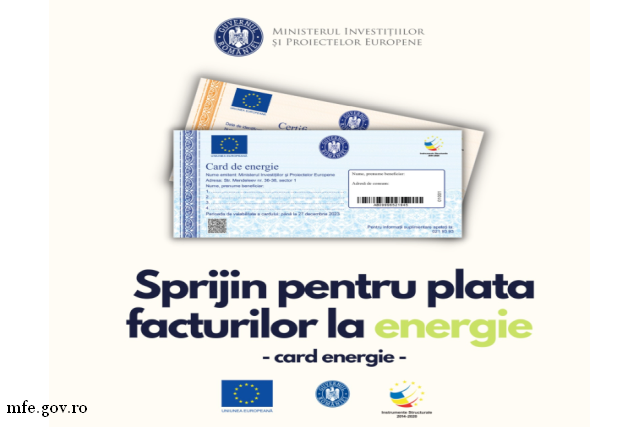The distribution of energy cards gets under way
The Postal Service begins to distribute energy cards to 4 million people earning less than 400 euros a month.

Roxana Vasile, 01.02.2023, 14:00
The distribution of the cards helping with the payment of energy bills got under way in Romania on 1st February. In a government meeting, prime minister Nicolae Ciucă asked the minister for investments and European projects to further coordinate with the minister for research and the Postal Service to make sure that everything the government has decided on paper gets done in practice. More precisely, the government will this year provide persons who have difficulty paying their energy bills with the equivalent in lei of 280 euros. The money will reach people in two payments via card, one this month, the second next September. More than four million people will thus receive help with their bills for electricity, gas, centralised heating, gas cylinders, wood fire, heating oil, wood pellets and other materials used for heating. The aid can be used for current or outstanding bills at the place where the beneficiaries reside.
The minister for investments and European projects Marcel Boloş said there are three methods of making the payments: at the post office, to the postal officer and electronically, via an app, which he explained is easy to use:
“The app can be accessed by typing in the serial number of the energy card and the three documents already used for making payments and which are necessary for the reimbursement of the heating aid, namely the ID card, the energy card and the energy bill.”
The energy card cannot be sold or donated, and those who try to break these rules are facing hundreds of euros in fines. One card can be used to make more than one payment to suppliers, until the money runs out. Another measure taken by the government to help the population amid the rising cost of electricity and natural gas was to supplement the budget allocated to support the installation of photovoltaic panels, which can now finance four times more such systems, amounting to almost 190,000 homes.
Also, procedures to access the funds have been simplified and the applications will be processed more quickly. Environment minister Tanczos Barna explains:
“Applicants will need to produce their ID cards, a document from the land register showing they dont have debts to the state or local budgets, and, once the photovoltaic system is installed, a certificate showing connection to the grid as users.”
Each applicant can receive around 4,000 euros, which is enough for a system providing 3.3 Kilowatts per hour. (CM)






























